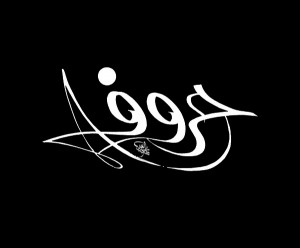 Bad translation makes fundamentalists of us all
Bad translation makes fundamentalists of us all
By Marie Dhumières, guardian.co.uk, Tuesday 20 July 2010 16.00 BST
http://www.guardian.co.uk/commentisfree/belief/2010/jul/20/translation-arabic-language-fundamentalist-muslim or http://bit.ly/a2gGGW or http://tinyurl.com/2fjebba
I was recently watching the Spanish documentary To Shoot an Elephant, about the Israeli attacks on Gaza in January 2009. The documentary is good, but the subtitles in English struck me as strange: “For the sake of Allah”, “May Allah protect [your sons] for you”, “May Allah reward you” and other references to God are recurrent throughout the film.
I couldn’t help thinking that, when translated literally into English, these expressions make Arabs sound very religious – or even like fundamentalists – in the eyes of those who have a tendency to jump to quick conclusions. And no need to say there are many of these in the current context of Islamophobia as it has been shown before on Cif.
But that’s just the way Arabic people speak. Fundamentalist Muslims, devout Muslims, moderate Muslims, part-time Muslims, Christians, Atheists – no one has an entire conversation without saying at the very least “Inshallah”, which literally means “God willing” and comes from the idea that you never know what God’s plan is. It can be used as much as you want, even if you’re not really thinking about God’s plans at that very moment.
I remember absurd conversations around the word when I first arrived in Syria 18 months ago:
“Ok, so I’ll see you tomorrow Inshallah”
“Oh you’re not sure, should I call back later?”
“No it’s fine I’ll see you at 6.30.”
“Ok, see you tomorrow then.”
“Inshallah.”
No, no, it’s not about God’s will, I will see you tomorrow.
The same goes with “Praise be to God” (Alhamdulilah), which can mean “I am fine”, “Cool, the electricity is back” or “Ah, you finally managed to pronounce this word”, and so many other things.
When you come back from a trip people say “Praise God for your safety”, and you should answer “May He keep you safe.” But what it really means is “Welcome back” and “Thanks”. At the end of a meal at someone’s house, you should say “May God always provide you with food”, and they would answer “May He give you health.” But again, it means “Thanks, it was delicious” and “Really? Thank you, you’re adorable.”
If you have a shower or a haircut, if someone gives you something, if you’re sick, if you say something stupid, if you’re going to get married, if you’ve just had a baby, if you’re mean to someone, if you get new shoes, if you get jealous of my amazing new shoes, if you want to swear that really, no, my new shoes are not so amazing – in almost every single daily life situation, there is a specific expression and a corresponding answer, which would refer to God in some way.
In Lebanon, they even use “May God dress you” when seeing a hot girl wearing a skirt or a top, meaning I guess, “Please God, quickly cover this great body before I jump on it.”
The same goes with insults: May God destroy your house, May God burn your religion, May God infect you with disease… It all sounds very scary, but be reassured, they don’t really mean it. And I am pretty sure that if God were actually to destroy your house at the moment they say it, they would feel kind of bad. And, even if people sometimes obviously really mean what they say when referring to God, most of the time they don’t. When I leave my atheist communist friends’ houses in Damascus and they say, beer in hand, “May God be with you,” I laugh. But as one of them said to me “I don’t think about it, and of course I don’t mean it, it’s a reflex, a tic.”
I have been living in Syria for some time, and I have started using these phrases too. It truly becomes a reflex, and also limits the chances of being charged far too much for a taxi ride. But when I think about what I am actually saying, I smile to myself just imagining the face of a taxi driver in London if I were to say to him when entering the car, “May God give you strength.” Hem, ok, well thank you.
In fact, removing religious references from daily speech in Arabic is a challenge. Another of my friends was telling me about how he had been trying for the last few years. “It’s really hard,” he said, “and that’s why people often think I am a foreigner.” It’s not that foreigners refuse to use religious expressions by principle; it’s just really hard to remember them all. So like my friend, they simply say “thanks” (“shukran”), “hello” (“marhaba”), and “good-bye” (“yalla bye” – no, it’s not really an Arabic word).
But think about it. In English, we say “God damn it”, “God bless you”, “Jesus Christ”, which would sound very strange if they were to be translated literally into another language. So next time you hear in the news or in a movie an Arabic guy saying “Praise be to God,” remember he may just be saying “Great, the electricity is back.”

2 comments
Great article….
I look forward to reading more of your blog…Inshallah!
Very informative…it’s nice to hear a rational voice speaking about how even language is relative to the culture (goes without saying), but unfortunately most of us either don’t know it or have placed that knowledge on the back burner. Thanks. Looking forward to reading more.